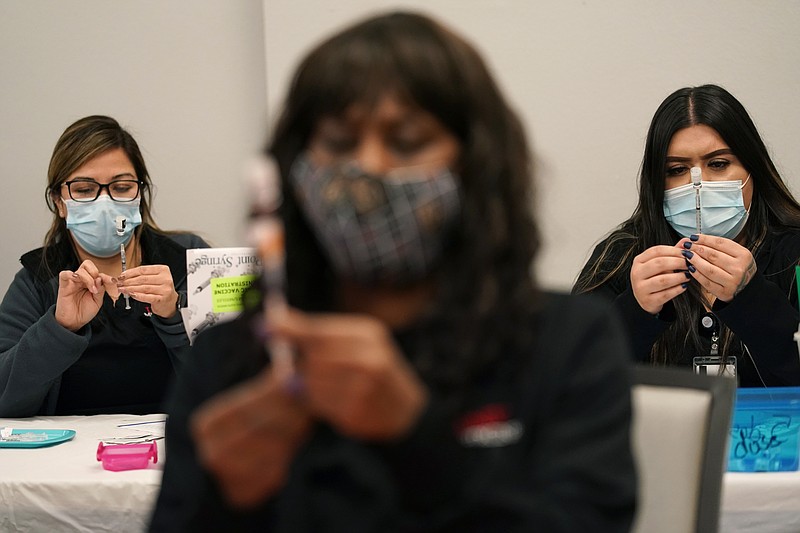WASHINGTON (AP) - COVID-19 vaccine makers told Congress on Tuesday to expect a big jump in the delivery of doses over the coming month, and the companies insist they will be able to provide enough for most Americans to get inoculated by summer.
By the end of March, Pfizer and Moderna expect to have provided the U.S. government with a total of 220 million vaccine doses, up sharply from the roughly 75 million shipped so far.
"We do believe we're on track," Moderna President Stephen Hoge said, outlining ways the company has ramped up production. "We think we're at a very good spot."
That's not counting a third vaccine, from Johnson & Johnson, that's expected to get a green light from regulators soon. The Biden administration said Tuesday it expects about 2 million doses of that vaccine to be shipped in the first week, but the company told lawmakers it should provide enough of the single-dose option for 20 million people by the end of March.
Looking ahead to summer, Pfizer and Moderna expect to complete delivery of 300 million doses each, and J&J aims to provide an additional 100 million doses. That would be more than enough to vaccinate every American adult, the goal set by the Biden administration.
Two other manufacturers, Novavax and AstraZeneca, have vaccines in the pipeline and anticipate eventually adding to those totals.
Asked pointedly if they face shortages of raw materials, equipment or funding that would throw off those schedules, all of the manufacturers expressed confidence they had enough supplies and had already addressed some of the early bottlenecks in production.
"At this point, I can confirm we are not seeing any shortages of raw materials," Pfizer's John Young said.
The hearing by a House subcommittee came as U.S. vaccinations continue to accelerate after a sluggish start and recent disruptions caused by winter weather. More than 44 million Americans have received at least one dose of the Pfizer or Moderna vaccine, and about 1.4 million per day got a first or second dose over the past seven days, according to the CDC.
However, state health officials said demand for inoculations still vastly outstrips the limited weekly shipments provided by the federal government.
"The most pressing challenge now is the lack of supply of vaccine doses," Rep. Diana DeGette, a Colorado Democrat, said as she opened the hearing. "Some of the companies here today are still short of the number of doses they promised to initially deliver when they last testified before this subcommittee in July."
Pfizer and Moderna failed to meet delivery quotas for the initial doses of their vaccines late last year. That's prompted Congress to scrutinize the companies' plans for vaccine development and delivery, which they noted benefited from $16 billion in federal funding.
"A significant amount of American tax dollars were invested to be able to produce the vaccine immediately upon approval," said Rep. David McKinley, a West Virginia Republican, who questioned executives on why they were still unable to meet demand for the vaccines.
Nearly 14 percent of Americans have received at least an initial dose of the two-shot-regimen vaccines from Pfizer and Moderna.

